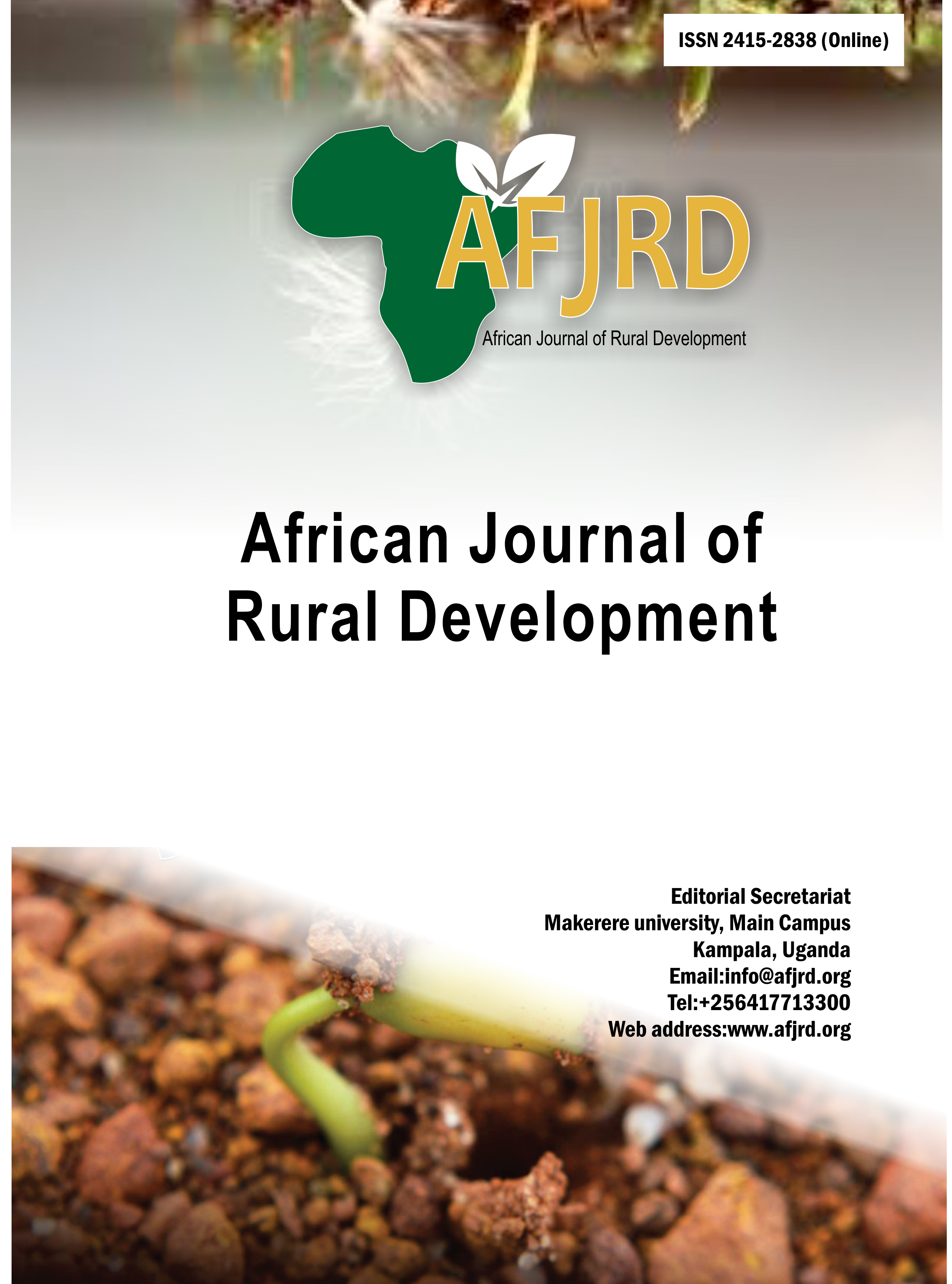Determinants of nutrient adequacy and dietary intake patterns among rural farming households in Northwestern Nigeria
Main Article Content
Abstract
Food production is expected to provide a sustainable pathway for household nutrition
security. Nonetheless, rural farming household in northern Nigeria who are noted for high
food production still remain malnourished. Therefore, the study investigated determinants of
nutrient adequacy and dietary intake patterns among rural farming households in northwestern
Nigeria. Structured interview schedule was used to elicit information from 302 households,
which was complimented with Focus Group Discussions (FGD) to gain a better insight
into factors influencing dietary intake patterns. Kaduna and Jigawa States were purposively
selected in northwestern Nigeria due to socio-cultural conditions of the States. Calories and
nutrients intakes were determined using 24-hour dietary recall using total dietary assessment
software, while the 30-day food records were used to describe dietary intake pattern. The
result revealed that calories and carbohydrate intake exceeded the recommended intake, which
were (2480.67KCal) and (246.41g), respectively. Conversely, protein (33.50g), potassium
(274.63mg) and iron (17.13mg) were below the recommended intake. Cereals such as rice,
millets, maize and wheat were consumed by 96.4% of respondents at least every other day.
High cost of food items, cultural preferences and crops cultivated influenced dietary intake
pattern. The findings call for renewed attention to encourage cultivation of bio-fortified staple
crops in the study area.
Article Details

This work is licensed under a Creative Commons Attribution 4.0 International License.
